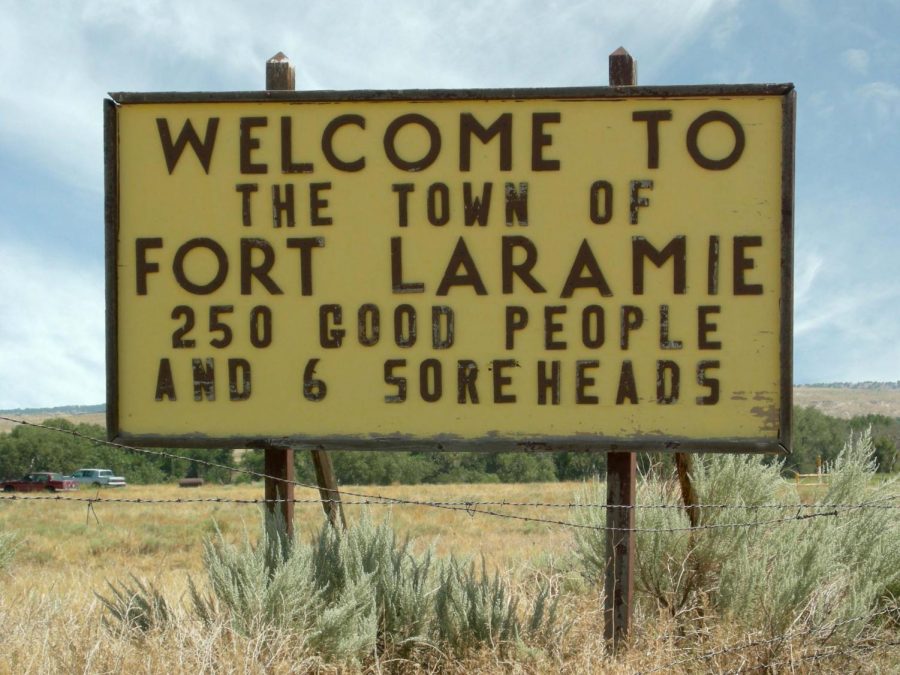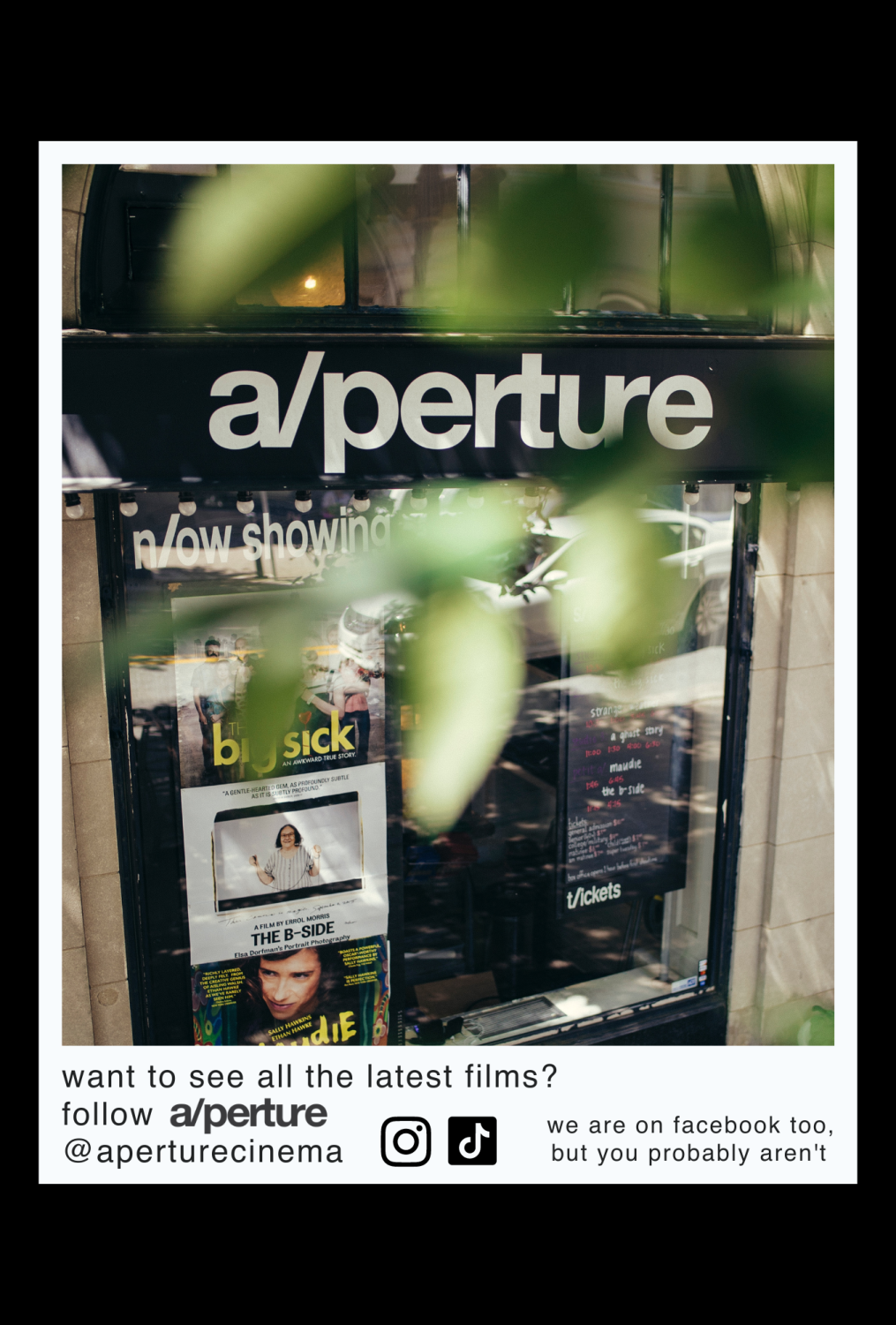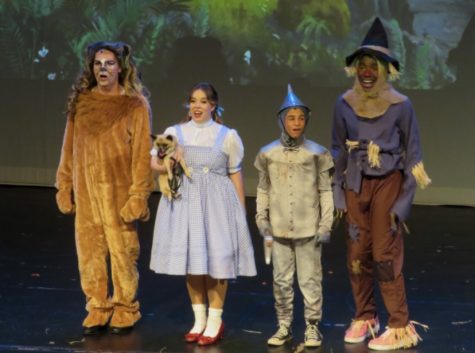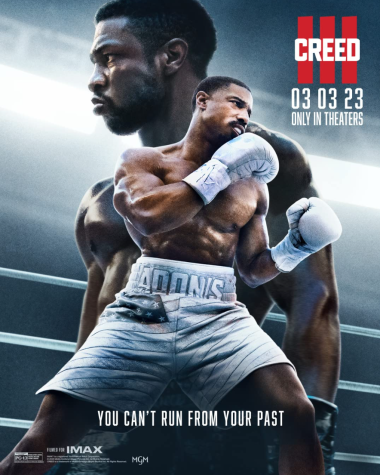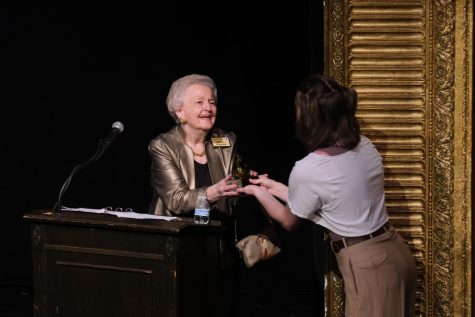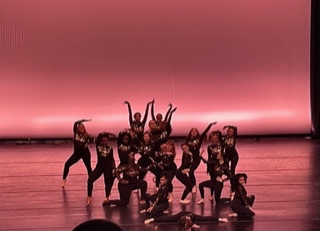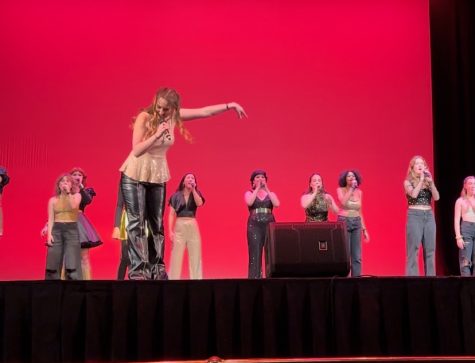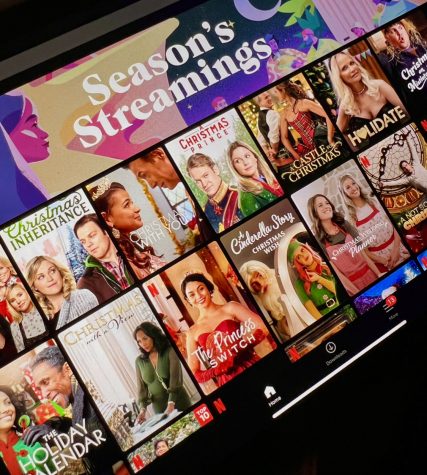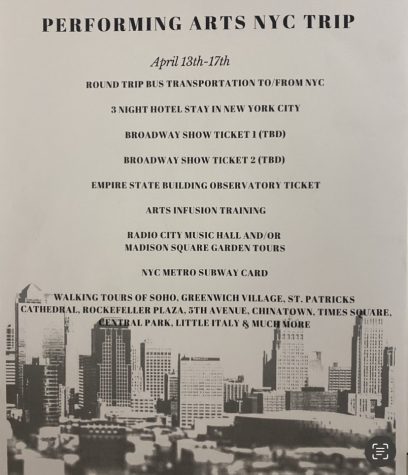Laramie Lands at Reynolds
November 15, 2017
“The Laramie Project,” is a relatively new style of theater that was shown at Reynolds this past week. The play is told through a series of interviews around the town of Laramie, Wyoming; this play was the first production of its kind to rely solely on interviews and additionally use few actors to portray a variety of people.
“The sub-genres of ‘verbatim theater’ (plays drawn from historical documents for their plot, characters and dialogue) and ‘devised theater’ (pieces developed through workshopping by a company of theater people, rather than written by one or two authors) had been around for decades, but no one had tackled a piece of history-in-the-making in this way. The Laramie Project has been the model for many, many new plays since its debut in 2000,” Louis Sisneros, Legacy Coordinator of the Matthew Shepard Foundation said.
The play occurs following the murder of Matthew Shepard, an openly gay college student at the University of Wyoming in Laramie; which was determined to be a hate crime. The play depicts several interviews that director Moisés Kaufman and his team gathered from residents of Laramie who knew Shepard after hearing about this incident.
“The Laramie Project” was first performed by the Tectonic Theater Project, and directed by Moisés Kaufman, in 2000. Since its premiere, it has been recreated in a plethora of varieties, adapted into a movie, had a sequel, and now found its way to be recreated in the Black Box of the RJR auditorium.
Sisneros identifies that, “The Laramie Project,” has become a paragon production for people to use and recreate to address issues of social equality and consciousness of actions. While Winston-Salem holds events like the Pride Parade to support LGBTQ+ rights, students like junior Jordan Knudsen are underwhelmed by the annual event downtown.
“We [Winston-Salem] are a very big city… but we don’t do a lot of things. We have [the] Pride [parade] once a year and that’s about it,” Knudsen says.
Other students like junior Taylor Bledsoe believe the relationship between the straight and gay communities of Winston-Salem is healthy in its current state.
“I think we have a healthy relationship. Straight people don’t push away gay people and act homophobic, and gay people don’t push away straight people and act heterophobic,” Bledsoe says.
Amid this dissonance of opinion, “The Laramie Project,” is a way to address the actions society takes and offers a vent to reflect upon the state of a community’s acceptance to find ways to create change for the better, as Louis Sisneros explains:
“In the 19 years since Matthew’s death, LGBT people have made huge gains—the right to marry everywhere in the US, for example. As another example, the Shepard-Byrd Hate Crimes Act became Federal law in 2009. But many other legal rights and protections very much depend on where you live. When we set up our information table at local events, we almost always include two regional maps showing that in Colorado, LGBT people are protected by statewide housing, employment, public accommodations and educational laws and policies. But if they cross state lines in any direction, and they lose some or even all of those protections.



